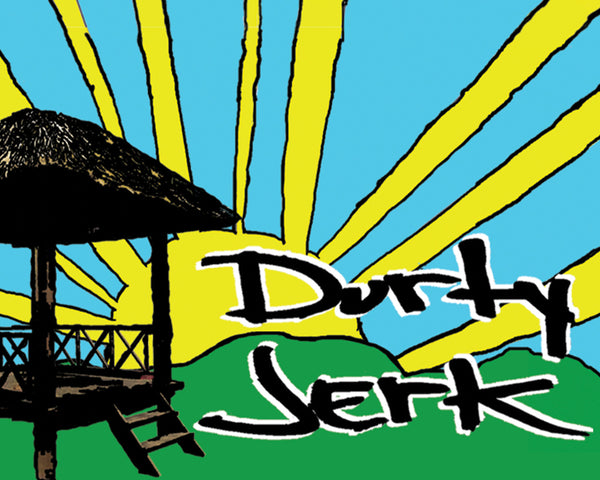A Brief History of Jerk
The Maroon people were Jamaican slaves from African dissent, that escaped from the grasps of the British and lived in the mountains alongside the Taino/Arawak Tribes.
In the mountains the Maroons were able to utilize their old African pit cooking techniques, combined with the local seasonings and ingredient knowledge that was provided by the native tribes, to flavor wild game.
This time-consuming pit smoking technique kept their location a mystery and preserved the meat. Meat, usually meaning wild boar was “jooked” (poked), seasoned generously and wrapped. The meat was poked and rubbed with jerk seasoning to penetrate the meat.
The covered pork was buried in a pit and cooked underground to prevent giving up their tribe whereabouts. The 6 to 8-hour slow roast would trap the moister inside the meat leaving it juicy and tender. This customary style of cooking is the original Jamaican Jerk method.
Jerk is a complex blend of seasonings including scallions, onions, scotch bonnet peppers, salt, thyme, allspice, black pepper and many other spices. All of these native ingredients would be found growing on the island’s fertile green landscape and turned into a spicy paste.
When English sanctions granted the Maroon people land, they no longer had the need to hide. With the England out of the way, the jerking tradition was moved from pits in the mountains to the huts on the beach. This relocation and new cooking style would later become known as the world famous “Jamaican Jerk”. A slow roasting method of cooking seasoned pork, chicken, beef, seafood, vegetables and fruit on pimento wood, over a slow cooking fire, covered by plantain leaves.
Boston Beach located on the northeastern end of the island is considered the Mecca of Jamaica Jerk. On the beaches today, Bostonians still cook jerk in huts the same way as their ancestors did when they relocated from the mountains. We give thanks, to all the beautiful people that brought jerk from the Jamaican mountain side to the world. We appreciate your contribution to humanity.
In the mountains the Maroons were able to utilize their old African pit cooking techniques, combined with the local seasonings and ingredient knowledge that was provided by the native tribes, to flavor wild game.
This time-consuming pit smoking technique kept their location a mystery and preserved the meat. Meat, usually meaning wild boar was “jooked” (poked), seasoned generously and wrapped. The meat was poked and rubbed with jerk seasoning to penetrate the meat.
The covered pork was buried in a pit and cooked underground to prevent giving up their tribe whereabouts. The 6 to 8-hour slow roast would trap the moister inside the meat leaving it juicy and tender. This customary style of cooking is the original Jamaican Jerk method.
Jerk is a complex blend of seasonings including scallions, onions, scotch bonnet peppers, salt, thyme, allspice, black pepper and many other spices. All of these native ingredients would be found growing on the island’s fertile green landscape and turned into a spicy paste.
When English sanctions granted the Maroon people land, they no longer had the need to hide. With the England out of the way, the jerking tradition was moved from pits in the mountains to the huts on the beach. This relocation and new cooking style would later become known as the world famous “Jamaican Jerk”. A slow roasting method of cooking seasoned pork, chicken, beef, seafood, vegetables and fruit on pimento wood, over a slow cooking fire, covered by plantain leaves.
Boston Beach located on the northeastern end of the island is considered the Mecca of Jamaica Jerk. On the beaches today, Bostonians still cook jerk in huts the same way as their ancestors did when they relocated from the mountains. We give thanks, to all the beautiful people that brought jerk from the Jamaican mountain side to the world. We appreciate your contribution to humanity.
